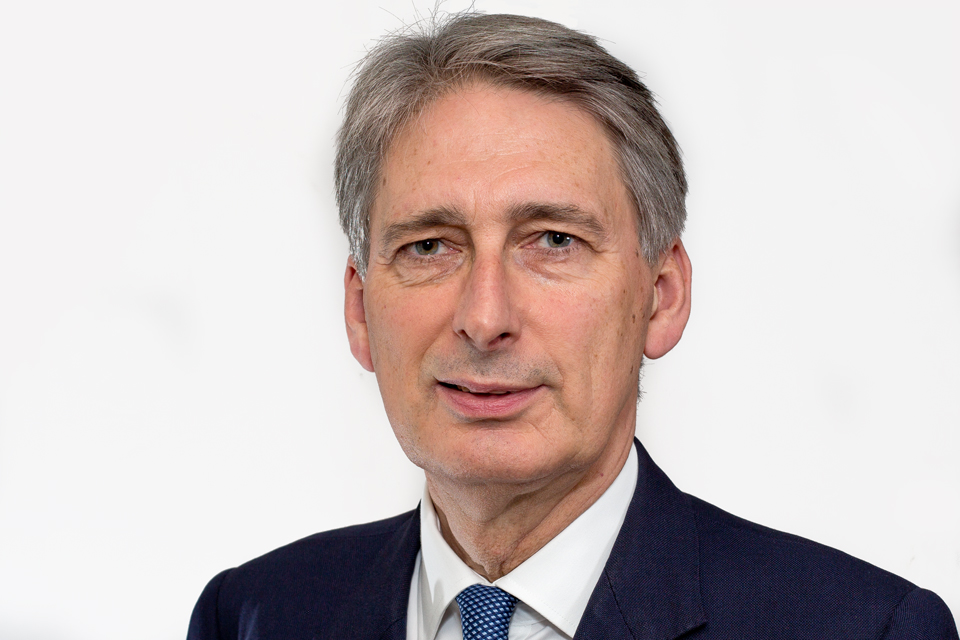
Local councils have welcomed chancellor Philip Hammond’s surprise boost to local authority funding in this week’s Budget announcement, although many are warning it is still not enough.
Hammond, in his Budget speech, paid tribute to the efforts made by local authorities to make efficiency savings over recent years and announced a raft of new funding increases to help it get through to next year’s Spending Review.
Increases included more than £1bn extra for social care over this year and next, £500m extra for roads maintenance, £475m for schools, £675m to spend on reviving high streets and a £770m extension of the Transforming Cities Fund.
Hammond told the House of Commons: “Local government has made a significant contribution to repairing the public finances and this Budget ensures local councils have more resources to deliver high quality public services.”
Speaking on Radio 4’s World at One programme today, Paul Carter, Conservative leader of Kent County Council and chairman of the County Councils Network, said: “I think the additional money announced that local government got to help it through this financial year and the challenge of setting a sensible budget for next year is really most welcome and way above what anybody I have talked to in local government expected to happen yesterday.
“So it really is good news for local government and I can’t see how anyone can spin it in any other way.”
He added: “The amount of additional investment going into local government including the £240m announced at the Conservative Party conference for social care is approaching £2bn worth of additional money that nobody expected to see coming to local government in this budget.
“That is exceptionally good news and will make a massive difference in preserving and maintaining good quality front line services valued by the public.”
He said that he expected that his own council would receive “somewhere in the order of £25m to £26m” thanks to the new cash, weeks after the council revealed it had a budget shortfall of £20m.
However, others in the sector were more circumspect in their reaction to this week’s Budget.
Speaking on the same programme, Linda Thomas, leader of Bolton Council said: “I do not feel grateful to the chancellor. What he gave us yesterday were crumbs from his table and I don’t think in local government we should be doffing our caps and being grateful to him.”
On social care, the Budget provides an additional £480m over this year and next for adult social care, aimed at freeing up hospital beds over the winter.
In addition, Hammond announced a further £410m in 2019/20 for adult and children’s social care.
There will also be an extra £55m in 2018/19 for the Disabled Facilities Grant to provide home aids and adaptations for disabled children and adults on low incomes.
On top of this, £84m will be provided over five years from next year through improvement pilots for up to 20 local authorities to help children stay at home with their families.
Responding to Budget 2018, Lord Porter, chairman of the Local Government Association, said: “While this funding will ease some of the immediate financial pressure facing councils and our local services, it is clear that this cannot be a one-off. Today’s funding is a start, but the real test will come in the Spending Review next year.”
Martin Reeves, local government finance spokesman at the Society of Local Authority Chief Executives said: “Today’s funding announcements for social care and potholes offer a bit of relief but do little to take local public services off the critical list.
“Unlike the NHS, which has been offered both multi-year funding and a commitment to a 10-year plan, local services have to make do with sticking plasters yet again.
“The creation of more short-term funding pots is no way to get value for money from public spending.”
Documents alongside the budget said that the Ministry of Housing, Communities and Local Government will publish details on how the new £675m Future High Streets Fund will work.
But it confirmed that it would be focused on improvements to town centre infrastructure, “including to increase access to high streets, reduce congestion, support redevelopment around high streets and enable housing and new workspaces to be created”.
The government also confirmed that local government would be fully compensated for the effects of a cut in business rates by a third for up to 90% of retail properties for two years.
In addition, the removal of the housing revenue account borrowing cap, with immediate effect, could provide an extra £4.6bn spending power to councils between now and 2023/24.
District Councils Network chairman John Fuller said: “The Budget puts district councils in the driving seat with the resources to reimagine our High Streets for the 21st century.
“It provides more tools and cash to manage local housing markets to build the homes the country needs with the lifting of the housing borrowing cap.”
The budget also trailed reforms to the system of planning contributions, which Melanie Leech, chief executive of the British Property Federation, said would help provide “more certainty for developers and local authorities”, and enable more infrastructure provision.












